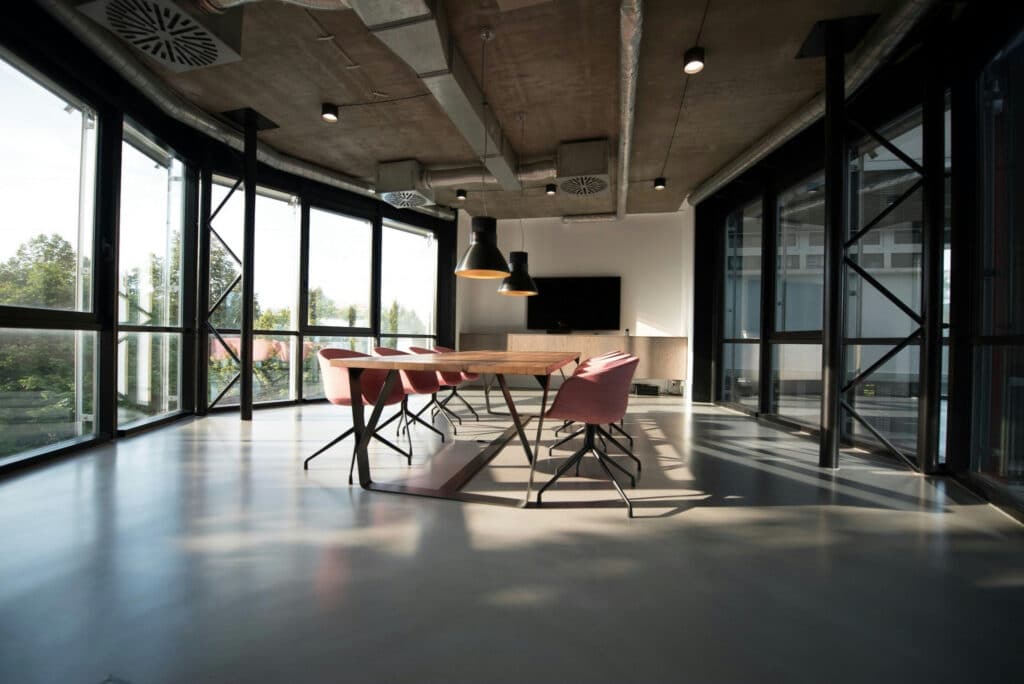The fully open-plan office, once hailed as the future of collaborative work, is no longer fit for purpose in the hybrid, post-pandemic workplace. This is according to a new report from Crown Workspace, which surveyed 1,250 office workers and facilities decision-makers across the UK, US, Singapore, India, New Zealand, and Hong Kong.
The research, commissioned by Crown Workspace, an expert in everything from office removal to workspace refresh, and full refurbishment, reveals a growing disconnect between the design of today’s offices and the evolving needs of their occupants.
Office attendance: preference vs reality
A staggering 91% of employees say they would return to the office more often if the space better supported their needs, highlighting a clear opportunity for businesses to reimagine their work environments. Yet, there’s a noticeable disconnect between attendance and employee preferences, while 59% currently work in the office full-time, only 41% say they actually prefer to. Nearly half (47%) favour a hybrid model, reflecting the growing demand for greater flexibility.
Despite this shift, the office still holds value. 45% of employees report feeling more productive in the office compared to just 25% at home.
How environment and design are impacting productivity
Open-plan office spaces may have once been seen as a solution for collaboration, but the reality is they often fall short, especially when it comes to supporting creativity and productivity. Three quarters (75%) of employees say that the furniture, layout, and flexibility of their office space have a significant impact on their wellbeing and performance, yet fewer than one in four (24%) feel their current setup actually supports those outcomes. The message is clear, employees want spaces that work with, not against, how they focus and create.
Quiet zones and personalised Workspace are high on the wish-list — 67% say access to quiet areas is essential, while 77% value having a dedicated workspace. A further 70% believe having a designated desk with a personalised setup (rather than hot-desking) is critical to a positive office experience. For businesses looking to boost productivity, creativity, and a meaningful return to the office, designing Workspace that prioritise focus, ownership, and comfort is essential.
While the survey shows collaborative, open spaces can be positive for offices, it also suggests companies and organizations have neglected the role of quiet spaces for some time.
The role of technology
Employees may be less productive at home simply because they don’t have access to the same equipment they use in the office. Notably, more than a third of employees (36%) only have access to a second monitor at work, highlighting the workplace’s advantage in providing specialised tech resources. Similarly, 40% of employees say they only have access to a printer in the office, compared to just 5% who have access to one exclusively at home — further reinforcing the gap in essential tools between remote and in-office setups.
Other tools, such as industry-specific equipment, are also largely office-based—58% of employees report having access to these only in the office, compared to just 4% who have access to them exclusively at home.
The future – flexible, focused, and fit for purpose
Looking ahead, 76% of facilities managers say they expect to create more interactive and engaging office environments within the next three years. Many are also evolving how they use space—storing desk equipment, furniture, and safety supplies off-site to make room for new layouts that better suit hybrid and collaborative workstyles.
Interestingly, 48% of facilities managers expect to downsize their office during the same period. This trend may be driven by evolving workplace dynamics in the wake of the pandemic. As Phil Oram, UKI Regional Director at Crown Workspace, explains: “Since the pandemic, the physical space that an office occupies has come under greater scrutiny. With fewer people in the office, it’s more important than ever to design Workspace around the needs of the workforce. At the same time, organisations must plan for a more sustainable future, aligning with global sustainability goals. As offices downsize, equipment doesn’t need to be discarded—there are real opportunities to upcycle and recycle, giving these items a second life.”
The verdict? Reimagine or retire the open office
Commenting on the findings from the report, Phil Oram said: “Our research shows that the modern workforce wants more from their office environments. Employees are looking for spaces that support both wellbeing and performance. Despite decades of popularity, the fully open office consistently falls short—failing to provide the quiet and personalised spaces people need to thrive. The future of the successful office will need to be flexible, functional, and above all, designed with people in mind. It’s time for employers to rethink their approach and take decisive steps to create Workspace that truly support their people—because when employees thrive, businesses do too.”





















































